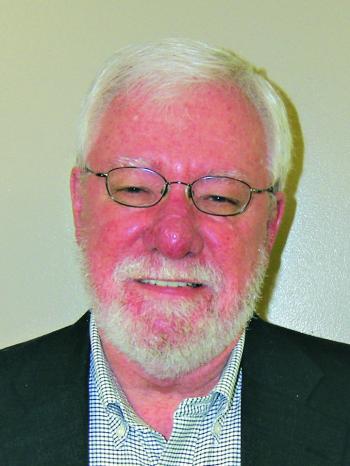
Jim Bradshaw
Statue sought for Amede Ardoin, a patriarch of French music
By Jim Bradshaw
There is a movement afoot to raise up to $50,000 for a statue to be placed in Eunice in recognition of the life and music of Amédé Ardoin, the accordion player who is widely recognized as one of the patriarchs of Louisiana French music.
His family originally wanted to place the statue over his grave. The problem with that has been that no one knows exactly where he was buried. He died in Central State Hospital in Pineville more than 70 years ago. His family knows he was buried on the hospital grounds, but so were 2,500 other patients, all in unmarked graves.
Former state poet laureate Darrell Bourque and members of the Ardoin family are leading the “Bring Home Amédé Ardoin” drive to put up the statue.
Ardoin was born March 11, 1898, in the l’Anse de Rougeau area of Evangeline Parish and as a young man became known for his distinctive, high-pitched singing voice and for his virtuosity on the accordion. He was one of the first musicians to record Louisiana French music.
In the 1920s and 1930s, he and fiddler Dennis McGee recorded waltzes and two-steps that were predecessors to both traditional Cajun music and to zydeco. The first of the recordings, six songs sung and played by Ardoin and McGee, was made Dec. 9, 1929, for Columbia Records in New Orleans.
It was not entirely unheard of for black and white musicians to play together even in those early days, although they usually played in houses, not dance halls. McGee talked in an interview in the 1960s about how he and Amede got together: “Amédé and I worked together. … We were both sharecroppers … and the boss liked music. So at night he would have us get together to play some. … We kept on playing together after that. Every once in a while we would play for a dance in the neighborhood.”
McGee said they started “playing together seriously” after their boss went broke and quit sharecropping. “Amédé left to come live in Eunice … [and] we started playing all over the area. … We were making good music in those days.”
They say women broke down and cried in the dance halls when Amédé sang his plaintive songs about growing up as a poor orphan. He reportedly had an uncanny knack for improvising French lyrics as he sang.
All of the 34 recordings he made between 1929 and 1934 have been put together by Tompkins Square Records in one collection, “Mama, I’ll Be Long Gone.”
There are a number of stories about when and how he died, but most people believe his death came after he was beaten by unknown assailants and left in a ditch. He had committed the unpardonable sin of using a white woman’s handkerchief to wipe his brow during a performance at a house party.
The late Canray Fontenot, who played for years with Amédé’s cousin, Bois Sec Ardoin, said Amédé was also run over by a Model A car or truck that crushed his head and throat.
There is another, less likely, story that a jealous rival musician poisoned him.
Whatever happened, Amédé was left crippled, with brain damage, and unable to care for himself — “plumb crazy,” in Canray’s words. Friends and family took care of him for a while, but in September 1942 he had to be committed to the state hospital, where he died, probably on Nov. 3, 1942, at age 44.
By then he and his music had nearly been forgotten. But his role and his songs came back into the public eye with the revival of Louisiana French music and especially the spread of zydeco in south Louisiana.
He was one of the pioneers that created and, through his recordings, helped keep alive a part our culture that is now recognized and loved around the world.
The NUNU Arts and Culture Collective, a 501(c)(3) non-profit organization based in Arnaudville, will collect and administer donations. The address is P.O. Box 556, 1510 Bayou Courtableau Hwy., Arnaudville LA 70512.
You can contact Jim Bradshaw at jimbradshaw4321@gmail.com or P.O. Box 1121, Washington LA 70589.
- Log in to post comments
